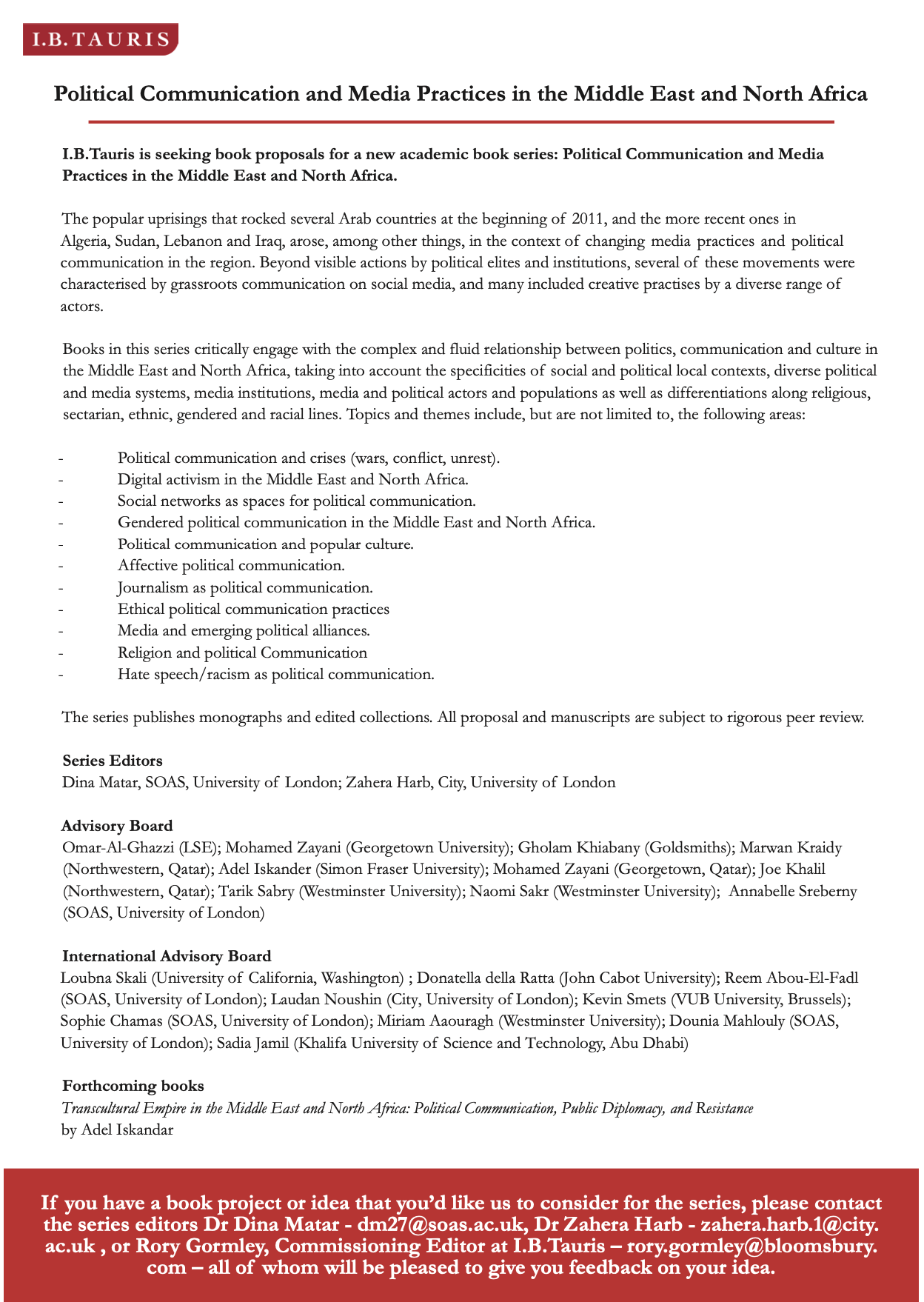I.B.Tauris is seeking book proposals for a new academic book series: Political Communication and Media Practices in the Middle East and North Africa.
The popular uprisings that rocked several Arab countries at the beginning of 2011, and the more recent ones in Algeria, Sudan, Lebanon and Iraq, arose, among other things, in the context of changing media practices and political communication in the region. Beyond visible actions by political elites and institutions, several of these movements were characterised by grassroots communication on social media, and many included creative practises by a diverse range of actors.
Books in this series critically engage with the complex and fluid relationship between politics, communication and culture in the Middle East and North Africa, taking into account the specificities of social and political local contexts, diverse political and media systems, media institutions, media and political actors and populations as well as differentiations along religious, sectarian, ethnic, gendered and racial lines. Topics and themes include, but are not limited to, the following areas:
- Political communication and crises (wars, conflict, unrest).
- Digital activism in the Middle East and North Africa.
- Social networks as spaces for political communication.
- Gendered political communication in the Middle East and North Africa.
- Political communication and popular culture.
- Affective political communication.
- Journalism as political communication.
- Ethical political communication practices
- Media and emerging political alliances.
- Religion and political Communication
- Hate speech/racism as political communication.
The series publishes monographs and edited collections. All proposal and manuscripts are subject to rigorous peer review.
Series Editors
Dina Matar, SOAS, University of London; Zahera Harb, City, University of London
Advisory Board
Omar-Al-Ghazzi (LSE); Mohamed Zayani (Georgetown University); Gholam Khiabany (Goldsmiths); Marwan Kraidy (Northwestern, Qatar); Adel Iskander (Simon Fraser University); Mohamed Zayani (Georgetown, Qatar); Joe Khalil (Northwestern, Qatar); Tarik Sabry (Westminster University); Naomi Sakr (Westminster University); Annabelle Sreberny (SOAS, University of London)
International Advisory Board
Loubna Skali (University of California, Washington) ; Donatella della Ratta (John Cabot University); Reem Abou-El-Fadl (SOAS, University of London); Laudan Noushin (City, University of London); Kevin Smets (VUB University, Brussels); Sophie Chamas (SOAS, University of London); Miriam Aaouragh (Westminster University); Dounia Mahlouly (SOAS, University of London); Sadia Jamil (Khalifa University of Science and Technology, Abu Dhabi)
Forthcoming books
Transcultural Empire in the Middle East and North Africa: Political Communication, Public Diplomacy, and Resistance
by Adel Iskandar
If you have a book project or idea that you’d like us to consider for the series, please contact the series editors Dr Dina Matar - dm27@soas.ac.uk, Dr Zahera Harb - zahera.harb.1@city. ac.uk , or Rory Gormley, Commissioning Editor at I.B.Tauris – rory.gormley@bloomsbury. com – all of whom will be pleased to give you feedback on your idea.
